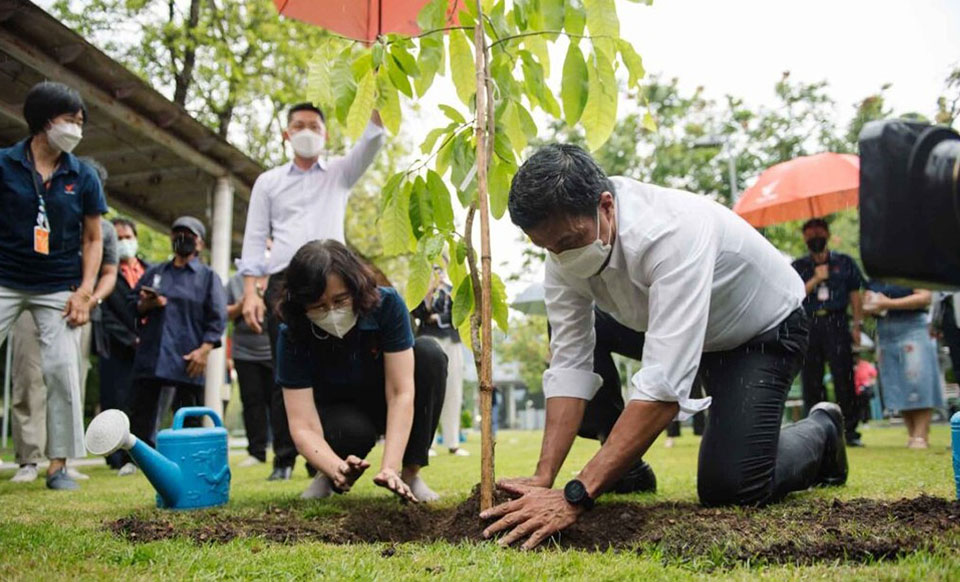A stark reminder of the harsh realities that face Phuket’s food scene is the “for sale” sign that hangs outside the restaurant in Cherng Talay that was once known as “Fire & Smoke.” This is not a one-off occurrence. Restaurants all over the island are struggling, and many are closing permanently. In spite of Phuket’s popularity as a tourist destination, the industry is clearly in trouble, with over 600,000 closures in Thailand in the past three years.
There are numerous reasons for this. Food prices are going up so much that already-tight margins are being squeezed. The price of essential ingredients has skyrocketed due to the war in Ukraine and volatile global markets. Many Phuket establishments rely on imported goods like cheese, pasta, and wine, which are becoming prohibitively expensive. Produce from a local source isn’t immune from the cost of living crisis, erratic weather, and rising transportation costs, all of which have an effect on availability and price.
A severe labor shortage only serves to exacerbate the situation. New opportunities have emerged as a result of Thailand’s economic recovery, particularly in the freelance sector, drawing workers away from traditional hospitality positions. Although the new increase in the minimum wage is a good thing for workers’ rights, it adds another financial burden to restaurant owners who are already having trouble keeping their books in order. Many venues are forced to rely on inexperienced, frequently temporary workers from Myanmar and other countries, which has an effect on service quality and customer satisfaction. Finding and keeping experienced staff is a constant struggle.
The second is Phuket’s “Italianization.” Another pizzeria or trattoria appears on every street corner, offering the same stale pizza and pasta menu. Businesses are forced to compete on price rather than quality as a result of this oversaturation, which further reduces profit margins. Even though Italian cuisine unquestionably has a place, its lack of originality and diversity stifles culinary innovation and leaves diners craving something else.
Sadly, many new restaurant operators in Phuket are unprepared for the challenges. Inexperienced foreign investors frequently underestimate the business’s complexity because they are enticed by the island’s perceived glamour and the desire to run a laid-back beachside bistro. A recipe for failure includes inadequate planning, inadequate funding, and ignorance of local regulations.
Promotion and marketing are frequently neglected or poorly carried out. A strong online presence is essential in the digital age of today, but many restaurants rely solely on word-of-mouth or outdated marketing strategies. A restaurant’s invisibility in a crowded market can be caused by a poorly designed website, insufficient social media engagement, and inadequate targeted advertising.
Even established venues are experiencing difficulties. Revenue at high-end restaurants, such as those with Michelin stars, has decreased by as much as 40%. A precarious situation that cannot be sustained over the long term has many people dipping into their personal savings just to stay afloat. The issue has become even worse as a result of the decline in corporate bookings and large-scale events, denying restaurants an essential source of revenue.
So, what can be done? Restaurants must first adapt. Utilizing technology is essential for inventory management, cost control, targeted marketing, as well as online ordering and delivery services. Restaurant owners must know their customers’ preferences, preferences, and spending habits. Menus can be tailored, enticing promotions can be made, and sales can be increased using this data.
Second, originality and genuineness are essential. Phuket is a melting pot of cultures, but its restaurants rarely reflect this diversity. Beyond the ubiquitous Italian staples, there is a growing demand for authentic, regional Thai cuisine as well as international flavors. More likely to pique the interest of discerning diners are establishments that provide something original and engaging.
Thirdly, it’s important to work together. Although the restaurant business is frequently portrayed as competitive, unity has power. Everyone can benefit from sharing best practices, pooling resources for marketing initiatives, and even working together on events. Supporting businesses, providing training, and advocating for sector-supporting policies can all come from industry associations like the Thai Restaurant Association.
The restaurant industry in Phuket faces significant obstacles, so adapting is essential for survival and growth. There are excellent examples of restaurants that are doing well, but unfortunately, many of them will soon appear in “Fire & Smoke.”









